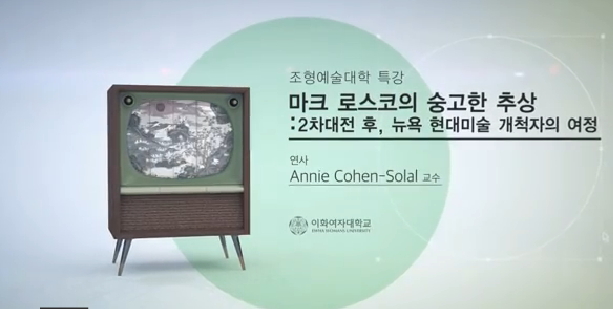본 연구는 교육수준이 이민과 이주노동자에 대한 태도에 미치는 영향을 분석한다. 특히 동아시아 3개국(한국, 일본, 대만)에서 이주노동자의 증가에 대해 교육수준과 세계화에 대한 태도에 ...
http://chineseinput.net/에서 pinyin(병음)방식으로 중국어를 변환할 수 있습니다.
변환된 중국어를 복사하여 사용하시면 됩니다.
- 中文 을 입력하시려면 zhongwen을 입력하시고 space를누르시면됩니다.
- 北京 을 입력하시려면 beijing을 입력하시고 space를 누르시면 됩니다.

이주노동자에 대한 태도에 영향을 미치는 교육의 효과 분해 = Decomposition of Educational Effects on Attitudes toward Migrant Workers: A Comparative Study on Korea, Japan, and Taiwan
한글로보기https://www.riss.kr/link?id=A82597076
- 저자
- 발행기관
- 학술지명
- 권호사항
-
발행연도
2011
-
작성언어
Korean
- 주제어
-
등재정보
KCI등재
-
자료형태
학술저널
-
수록면
129-157(29쪽)
- 제공처
- 소장기관
-
0
상세조회 -
0
다운로드
부가정보
국문 초록 (Abstract)
본 연구는 교육수준이 이민과 이주노동자에 대한 태도에 미치는 영향을 분석한다. 특히 동아시아 3개국(한국, 일본, 대만)에서 이주노동자의 증가에 대해 교육수준과 세계화에 대한 태도에 따라 어떠한 차이를 보이는가를 비교ㆍ분석한다. 이를 위해 본 연구는 EASS(East Asian Social Surveys) 자료를 활용하였으며, 개인이 가지고 있는 외국인근로자에 대한 태도를 교육수준에 따른 각 태도의 수준별 이행확률로 검증할 수 있는 순차로짓모형을 적용하였다. 분석 결과는 다음과 같다. 첫째, 교육수준별 이주노동자에 대한 태도를 살펴보면, 한국, 일본, 대만 동아시아 3개국이 국가별로 상이한 결과를 보여준다. 한국의 경우에는 학력이 높을수록 이주노동자에 대해 배타적 태도를 나타내는 반면, 일본과 대만의 경우에는 학력이 높을수록 개방적 태도를 보인다. 특히, 대만의 경우에는 이러한 경향이 두드러진다. 둘째, 교육계층별로 이행과정의 가중치를 분석한 결과, 한국과 대만의 경우에는 전반적으로 이주노동자의 증가를 반대하는 입장이며, 일본의 경우에는 현 수준에서 유지되기를 희망하는 경향이 있다. 또한 일본과 대만의 경우에는 고학력층에서 이주노동자의 증가를 원하지만, 한국의 경우에는 고학력층에서 이러한 경향이 보이지 않는다. 결론적으로 모든 국가들에서 교육수준이 높을수록 이주노동자에 대해 개방적이라고 볼 수 없으며, 각 국가의 정치ㆍ사회ㆍ문화적 특성에 따라 동일 교육수준 내에서도 차이가 존재한다는 시사점이 제시된다. 또한 교육수준이 이주노동자에 대한 태도에 미치는 영향을 설명하는데, 집단 간 경제적 경쟁에 근거한 접근보다 사회문화적 접근이 필요함을 말해준다.
다국어 초록 (Multilingual Abstract)
This study attempts to analyze the effect of level of education on the attitudes toward immigrants or foreign workers. More specifically, we examine whether there is significant difference in the effects of the level of education and global mind on th...
This study attempts to analyze the effect of level of education on the attitudes toward immigrants or foreign workers. More specifically, we examine whether there is significant difference in the effects of the level of education and global mind on the attitude among three East Asian countries (South Korea, Japan, and Taiwan), controlling other socio-demographic factors in relation to increase in immigrants and foreign workers. Using EASS data, we employs sequential logit model to the general attitudes toward immigrant workers into the weighted sum of transition probability within each educational level. One major finding is that there is clear and significant difference in the relationship between the level of education and the attitudes toward foreign workers among three countries. In general, while Japanese and Taiwanese tend to have more open-minded attitudes toward foreign workers as they have higher level of education, Koreans are opposite case that they are little bit more hostile toward to foreign workers with higher level of education. Especially, there is strong positive effect of education on the attitude in Taiwanese case. Another finding is that while there is strong resistance against increase in migrant population in Korea and Taiwan, Japanese respondents want current level of foreign population to remain in the similar level. Our findings imply that there is no one converging pattern of relationship between the level of education and the positive attitudes toward foreign workers which can be applied to any country. Therefore, this paper suggests that unique political, social, and cultural characteristics of each country should be considered to better understand the effect of education on the attitude toward immigrants and foreign workers. Also, we conclude that systematic comparative-demographic analyses should be utilized to provide more comprehensive picture of how difference in educational level affects the attitude toward immigrants and foreign workers.
목차 (Table of Contents)
- Ⅰ. 머리말
- Ⅱ. 선행연구 검토
- Ⅲ. 연구방법
- Ⅳ. 분석결과
- Ⅴ. 결론
- Ⅰ. 머리말
- Ⅱ. 선행연구 검토
- Ⅲ. 연구방법
- Ⅳ. 분석결과
- Ⅴ. 결론
- 〈참고문헌〉
동일학술지(권/호) 다른 논문
-
Differential Effects of Educational Attainment on Chronic Diseases with Age
- 한국인구학회
- Min-Ah Lee(이민아)
- 2011
- KCI등재
-
- 한국인구학회
- 강유진(Yoojean Kang)
- 2011
- KCI등재
-
- 한국인구학회
- 민현주(Hyunjoo Min)
- 2011
- KCI등재
-
- 한국인구학회
- 김현숙(Hyun-Suk Kim)
- 2011
- KCI등재




 ScienceON
ScienceON DBpia
DBpia







